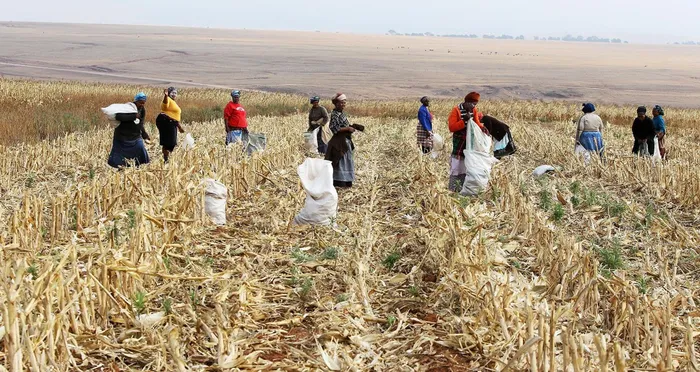Farmers warn of food security crisis over proposed mining bill

South Africa’s farming industry is warning that the proposed Mineral Resources Development Amendment Bill, 2025 could severely undermine agricultural sustainability, food security, rural safety and the environment by allowing widespread small-scale and “artisanal” mining on farmland without adequate consultation, environmental safeguards or agricultural oversight
Image: Phando Jikelo/Independent Newspapers
South Africa’s agricultural sector is raising alarm bells over the government’s proposed Mineral Resources Development Amendment Bill (MRDAB), warning that the legislation could place food security, rural stability, and the environment at severe risk.
The bill, which is open for public comment until 13 August 2025, aims to amend the Mineral and Petroleum Resources Development Act of 2002 by introducing new definitions and provisions for small-scale and “artisanal” mining. According to the Department of Mineral Resources, these changes form part of a “third wave” of Broad-Based Black Economic Empowerment (B-BBEE) designed to advance historically disadvantaged communities.
However, agricultural leaders say the proposed measures lack proper consultation and fail to safeguard farming resources.
“The government’s lack of sufficient insight and consideration for the protection of agricultural resources in the MRDAB puts the stability of the agricultural sector and food security at risk,” said Bennie van Zyl, CEO of TLU SA. “The broad application of small-scale and ‘artisanal’ mining permits could lead to a dramatic increase in mining activities on agricultural land without the necessary environmental and agricultural controls, turning farmland into a lunar landscape and undermining land values.”
Concerns over land degradation and rural security
Under the proposed bill, small-scale mining permits could be granted for up to five years, while “artisanal” mining permits could run for two years. Farming representatives warn that this could take large tracts of land out of agricultural use for prolonged periods, leading to soil erosion, destruction of grazing areas, and permanent damage to farmland.
There are also fears of increased informal settlements and potential spikes in rural crime, including farm attacks, stock theft, and land grabs – challenges that the South African Police Service is already stretched to manage.
Lack of agricultural expertise in decision-making
One of the most contentious aspects of the MRDAB is the creation of a regional mining development and environmental committee that excludes agricultural experts. TLU SA says this will skew the decision-making process in favour of mining interests while sidelining farming concerns.
The organisation also objects to the proposed shortening of environmental approval timeframes and what it calls the “vague” definition of “meaningful consultation”. These, it argues, leave too little room for proper participation by farmers, environmental specialists, and other affected stakeholders.
Centralisation of power
Critics are also uneasy about the bill’s centralisation of power in the hands of the Minister of Mineral Resources. Under the new rules, the minister would have extensive discretion over the allocation of permits and enforcement of environmental rehabilitation without mandatory consultation with the Minister of Agriculture or the involvement of agricultural and environmental experts.
Van Zyl warned that this approach threatens both property rights and the long-term viability of South Africa’s agricultural economy.
Calls for urgent action
TLU SA has urged all farmers to scrutinise the bill and submit their comments before the deadline. The organisation has proposed several changes, including:
- Full enforcement of the Agricultural Resources Act and activation of advisory councils to protect agricultural interests.
- Limiting small-scale and artisanal mining to non-agricultural land until adequate consultation with the Minister of Agriculture has taken place.
- Reviewing the current B-BBEE policy to ensure it supports, rather than undermines, sustainable farming.
- Amending Section 49 of the MPRDA to require the Minister of Mineral Resources to consult with the Minister of Agriculture before granting mining permits on farmland.
- Strengthening the role of environmental and agricultural experts in the permit process, monitoring, and rehabilitation of mined areas.
A call for balance
“South Africa cannot afford legislation that tips the scales too far in favour of mining at the expense of agriculture,” said Van Zyl. “A more balanced and thorough approach is urgently needed, one that recognises the vital role farming plays in our economy, our environment, and our nation’s food security.”
Farmers, environmentalists, and rural communities now have just days left to make their voices heard before the public comment period closes.
South Africa’s farming industry is warning that the proposed Mineral Resources Development Amendment Bill, 2025 could severely undermine agricultural sustainability, food security, rural safety and the environment by allowing widespread small-scale and “artisanal” mining on farmland without adequate consultation, environmental safeguards or agricultural oversight, prompting urgent calls from TLU SA for farmers to submit objections before the 13 August deadline.
Related Topics: